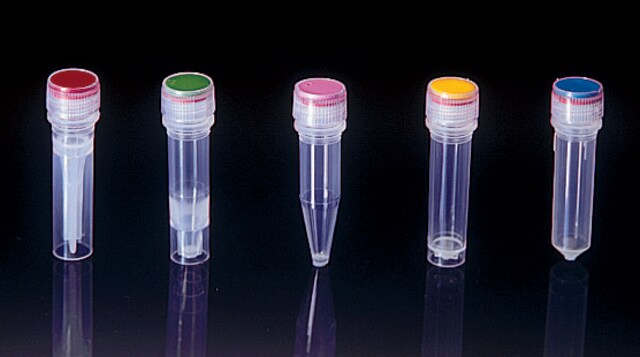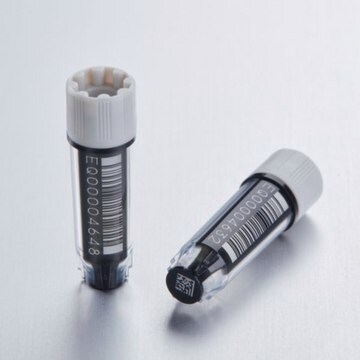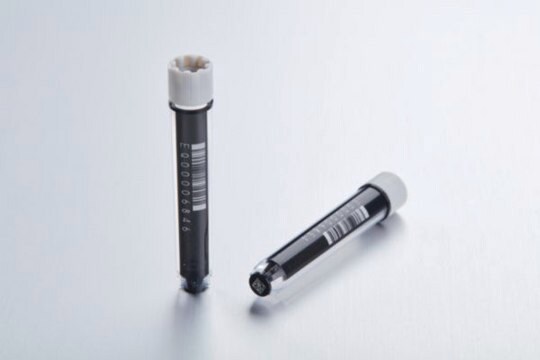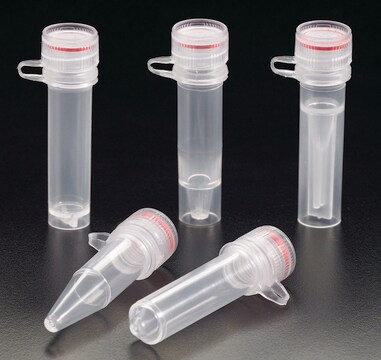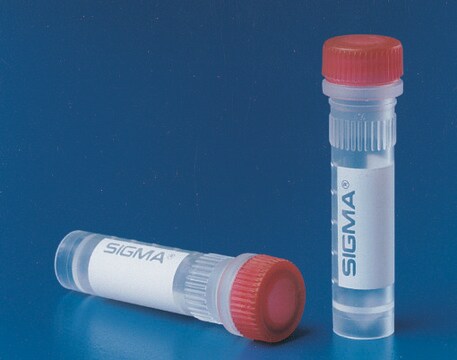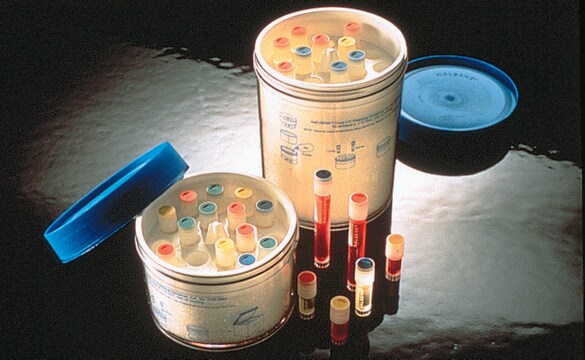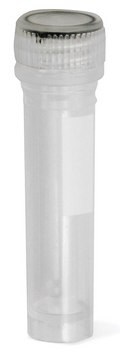EP0030079400
Eppendorf CryoStorage Vials with SafeCode system (data matrix code, barcode and plain text labels)
non-sterile, capacity 0.5 mL, pack of 960 × (10 x individually packed racks with 96 vials each)
Synonim(y):
Cryogenic vials, Eppendorf® 2D Coded Vials, Eppendorf® SafeCode Vials
About This Item
Polecane produkty
Materiały
flat bottom
polypropylene
screw top cap
sterylność
non-sterile
Właściwości
DNase free
endotoxin free
neck thread External
producent / nazwa handlowa
Eppendorf® 0030079400
opakowanie
pack of 960 × (10 x individually packed racks with 96 vials each)
Parametry
temp. range at -196 °C
pojemność
0.5 mL
Szukasz podobnych produktów? Odwiedź Przewodnik dotyczący porównywania produktów
Opis ogólny
"Every stored vessel must be labeled" - every laboratory employee agrees. However, the reality is different: in every ULT freezer there is at least one container without labeling or with completely illegible labeling. It is recommended that vessels be clearly labeled so that they can be easily and reliably identified by anyone. Minimum requirements for reliable reading are printed plain text labels on the vessels. One step further in the direction of fast and reliable sample identification is then labeling with barcodes, barcoding.
A barcode is a machine-readable visual representation of data.
A barcode is a machine-readable visual representation of data. With classic 1D barcodes, the data is encoded by bars of different widths and gaps in between. Two-dimensional codes (2D) are based on points, hexagons, rectangles or other geometric patterns. These codes are also referred to as data matrix codes.
The following specifications apply to 2D codes:
- The edge pattern (finder pattern) consists of two constant lines on the left and below, the "clock track"
- The quiet zone (quiet zone) surrounds the edge pattern, it should not contain any black and white contrast
- The code can be white on a black background or black on a white background.
The Eppendorf CryoStorage Vials offer secure sample IDs and simple and fast sample identification through 3-level coding:
- 1D barcode (side)
- Plain text (side)
- 2D data matrix code with ECC 200 error correction (bottom)
Zastosowanie
Cechy i korzyści
ECC 200 error correction function enables safe code reading with up to 30 % damaged codes
Temperature range: -196 °C (gas phase of LN2) to +121 °C
Manufactured from high-quality polypropylene in class VIII cleanroom for highest sample purity
Pre-capped and pre-racked for comfortable handling
Additional information on vials available via Eppendorf website for documentation purposes
Direct import into Eppendorf eLABInventory and eLABJournal software for convenient handling
Informacje prawne
Wybierz jedną z najnowszych wersji:
Certyfikaty analizy (CoA)
Przepraszamy, ale COA dla tego produktu nie jest aktualnie dostępny online.
Proszę o kontakt, jeśli potrzebna jest pomoc Obsługa Klienta
Masz już ten produkt?
Dokumenty związane z niedawno zakupionymi produktami zostały zamieszczone w Bibliotece dokumentów.
Nasz zespół naukowców ma doświadczenie we wszystkich obszarach badań, w tym w naukach przyrodniczych, materiałoznawstwie, syntezie chemicznej, chromatografii, analityce i wielu innych dziedzinach.
Skontaktuj się z zespołem ds. pomocy technicznej